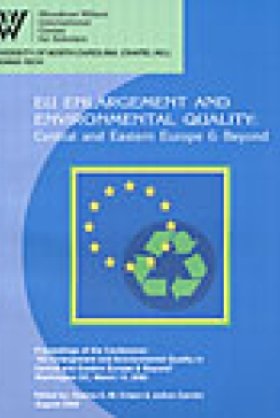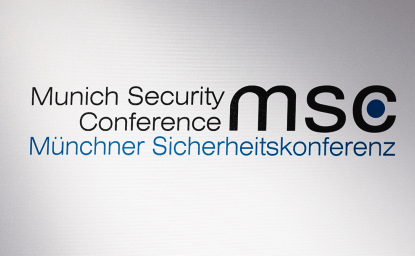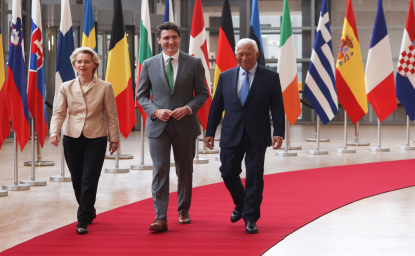"EU Enlargement and the Environment: Central and Eastern Europe & Beyond"


European Union (EU) accession is no longer a question of “if” but “when” for the countries of Eastern and Central Europe. But accession has required these countries to adopt wholesale European regulations on a broad number of topics, including environmental standards and protection. Tremendous environmental progress has been made in many candidate countries since 1995. Yet, at best, one can express guarded optimism about the ultimate environmental consequences of enlargement. On March 14, 2002, a diverse group of international experts came together for a one-day conference to explore the potential effects EU enlargement might have on national and EU environmental quality and policies. This publication reflects the mix of optimism and pessimism held by the conference participants.
These proceedings take a broad look at how accession process-mandated institutional developments, regulatory policies, and social change are expected to affect environmental quality and security in the region, Western Europe, and beyond. They do this by examining cross-cutting activities and innovations in specific policy areas, discussing the current state of the environment and institutional issues associated with EU accession, and addressing the long-term implications of accession on various media (air, water, etc.), both within specific countries and across boundaries. The experts argue that, while enlargement does not guarantee sustainable development; the process will ultimately positively affect European environmental quality both in the short- and long-term. The conference also addresses the role of non-governmental organizations in shaping environmental policy and enlargement activities. It closes with a look at future challenges for the environment with respect to EU enlargement and state sovereignty issues.
CONTENTS
INTRODUCTION (PDF 3.19 MB)
Geoffrey D. Dabelko, Director, Woodrow Wilson Center’s Environmental Change and Security Project, and lecturer, Georgetown University’s School of Foreign Service
PART I. IMPLICATIONS OF EU EASTERN
ENLARGEMENT FOR THE ENVIRONMENT
ENVIRONMENTAL POLICY AND EU ENLARGEMENT: A STATE-CENTERED APPROACH (PDF 3.73 MB)
Petr Jehlicka,Visiting Professor, Faculty of Social Sciences, Open University, and UK Research Fellow, Institute of International Relations, Czech Republic, and Lecturer (Social Geography), Charles University’s Department of Social Geography and Regional Development; and Andrew Tickle
PART II. THE IMPACT OF EU ENLARGEMENT ON
ENVIRONMENTAL POLICIES, PRACTICES AND INSTITUTIONS
CHALLENGES FOR GOVERNANCE IN A PAN-EUROPEAN ENVIRONMENT: TRANSBORDER COOPERATION AND INSTITUTIONAL COORDINATION (PDF 2.67 MB)
Alexander Carius, Co-founder and Managing Director, Adelphi Research, Berlin, Germany
EU ENLARGEMENT, INDUSTRIES AND ENVIRONMENTAL POLICY (PDF 1.39 MB)
Liliana Botcheva-Andonova, Post-doctoral Fellow, Columbia Earth Institute, and Adjunct Professor, Department of Political Science, Columbia University
NUCLEAR POWER AND EU ENLARGEMENT: THE CASE OF TEMELIN (PDF 3.32 MB)
Regina S. Axelrod, Professor and Chair, Department of Political Science, Adelphi University, New York
PART III. EU ENLARGEMENT: IS IT SUSTAINABLE?
KEYNOTE ADDRESS (PDF 2.88 MB)
Tom Garvey, Member, Boards of the Regional Environmental Centres in Moscow, Budapest and Chisinau, and Former Deputy Director General, Environment and Nuclear Safety Department, European Commission
PART IV. PUBLIC PARTICIPATION,
NGOS AND EU ENLARGEMENT
PUSHING ON THE DOOR: THE ROLE OF CENTRAL AND EAST EUROPEAN NGOs IN ENLARGING THE EU (PDF 952 KB)
Andreas Beckmann, Coordinator, Accession Initiative, World Wide Fund for Nature (WWF), Austria, and former Director, Development and Regional Coordinator, Environmental Partnership for Central Europe
SETTING AGENDAS AND SHAPING ACTIVISM:
EU INFLUENCE ON CENTRAL EUROPEAN ENVIRONMENTAL MOVEMENTS (PDF 736 KB)
Barbara Hicks, Professor, Department of Political Science, New College of the University of South Florida
EU MEMBERSHIP: BOON OR BANE FOR THE ENVIRONMENTAL COMMUNITY IN THE ACCESSION COUNTRIES? (PDF 775 KB)
Ruth Greenspan Bell, Resource for the Future’s Program for International Institutional Development and Environmental Assistance (IIDEA)
PART V. EU EASTERN ENLARGEMENT:
FUTURE CHALLENGES FOR THE ENVIRONMENT
ENLARGEMENT AND THE ENVIRONMENT: FUTURE CHALLENGES (PDF 47.7 KB)
John M. Kramer, Distinguished Professor and Chairperson, Department of Political Science, Mary Washington College, Fredericksburg, Virginia
THE IMPACT OF ENLARGEMENT ON EU ENVIRONMENTAL POLICY: AN HISTORICAL-INSTITUTIONALIST PERSPECTIVE (PDF 39.9 KB)
Ingmar von Homeyer, Senior Fellow, Ecologic, Institute for International & European Environmental Policy, Berlin
“EUROPEANIZING” CENTRAL EUROPE: CAPACITY, SURPRISES, LESSONS, and CHALLENGES (PDF 42.4 KB)
Stacy D. VanDeveer, Assistant Professor, Department of Political Science, University of New Hampshire
APPENDICES
A. Speaker Biographies (PDF 21.1 KB)
B. Conference Agenda (PDF 13.4 KB)
Authors

Global Europe Program
The Global Europe Program is focused on Europe’s capabilities, and how it engages on critical global issues. We investigate European approaches to critical global issues. We examine Europe’s relations with Russia and Eurasia, China and the Indo-Pacific, the Middle East and Africa. Our initiatives include “Ukraine in Europe”—an examination of what it will take to make Ukraine’s European future a reality. But we also examine the role of NATO, the European Union and the OSCE, Europe’s energy security, transatlantic trade disputes, and challenges to democracy. The Global Europe Program’s staff, scholars-in-residence, and Global Fellows participate in seminars, policy study groups, and international conferences to provide analytical recommendations to policy makers and the media. Read more

Explore More
Browse Insights & Analysis
EU-US Alliance Faces Uncertainty: Tensions Over Trade, Security, and Democracy at Munich

The Canada-EU Leaders' Meeting: A New Era of Cooperation?

